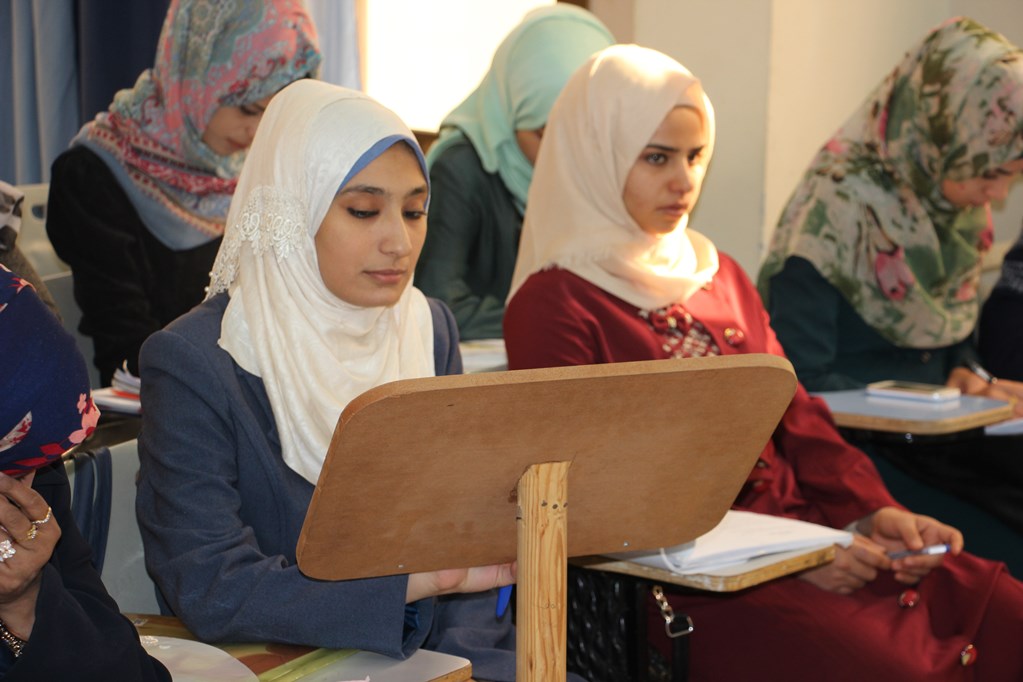
By: Raed Al Nims
Ever since its creation, PRCS’ College of Ability Development in Khan Younes has paid utmost attention to its students, including those with physical, hearing and sight impairments. The College endeavors to offer its students the best learning environment and to overcome obstacles hindering their education. When you visit the College, you see firsthand all the efforts made so that disabled students do not feel different from their able-bodied peers.
Haneen Eid (27), a partially sighted fourth year student at the College, described her college experience as follows: “I am very happy to be enrolled at this College which has provided me with the necessary means to continue my education and to attend lectures and practical courses. For example, I was provided with a large-size bookstand as well as large print books and exam papers so I could study and sit for exams just like my sighted peers. The College offers a safe and supportive environment for vision impaired students: it has talking elevators fitted with protruding buttons so I can easily find my way and know exactly where I am, and all staircases, corridors and facilities were designed to accommodate the needs of disabled students”.
Aya Kafafi (23), a student with cerebral palsy which affects her movement and speech, said: “I enrolled at the College four years ago, and now I am undergoing a 2-month apprenticeship training as part of my graduation requirements. Thanks to the College, I have never felt less capable than my peers: the College endeavored to integrate us together, helped us challenge our disabilities and do our utmost to succeed and prove ourselves. It also provided me with an aide to help me take notes during class, created a committee to assist disabled students and helped us overcome all obstacles, especially during practical classes. By taking the same courses and practical classes as my peers, I felt equal to them”.
Dr. Jean Calder, College Dean, said: “The college is pleased to welcome disabled students and will continue to meet their educational needs. For example, the College offers partially sighted students large-print books and exam papers, it uses braille to support visually impaired students, all its facilities are accessible for the disabled and it provides writing aides and sign language interpreters when needed. We treat all students alike and we work hard to ensure that disabled students can attend all classes so they can play a more active role in their societies and find jobs. All available tools and means were used to support and build the abilities of the 24 students who have already graduated from the College”. Moreover, the College adheres to the humanitarian principles of the Palestine Red Crescent Society which supports disabled persons, develops their abilities, treats them as first-class citizens and integrates them in their communities in order to help them succeed and prosper, Dr. Calder added.